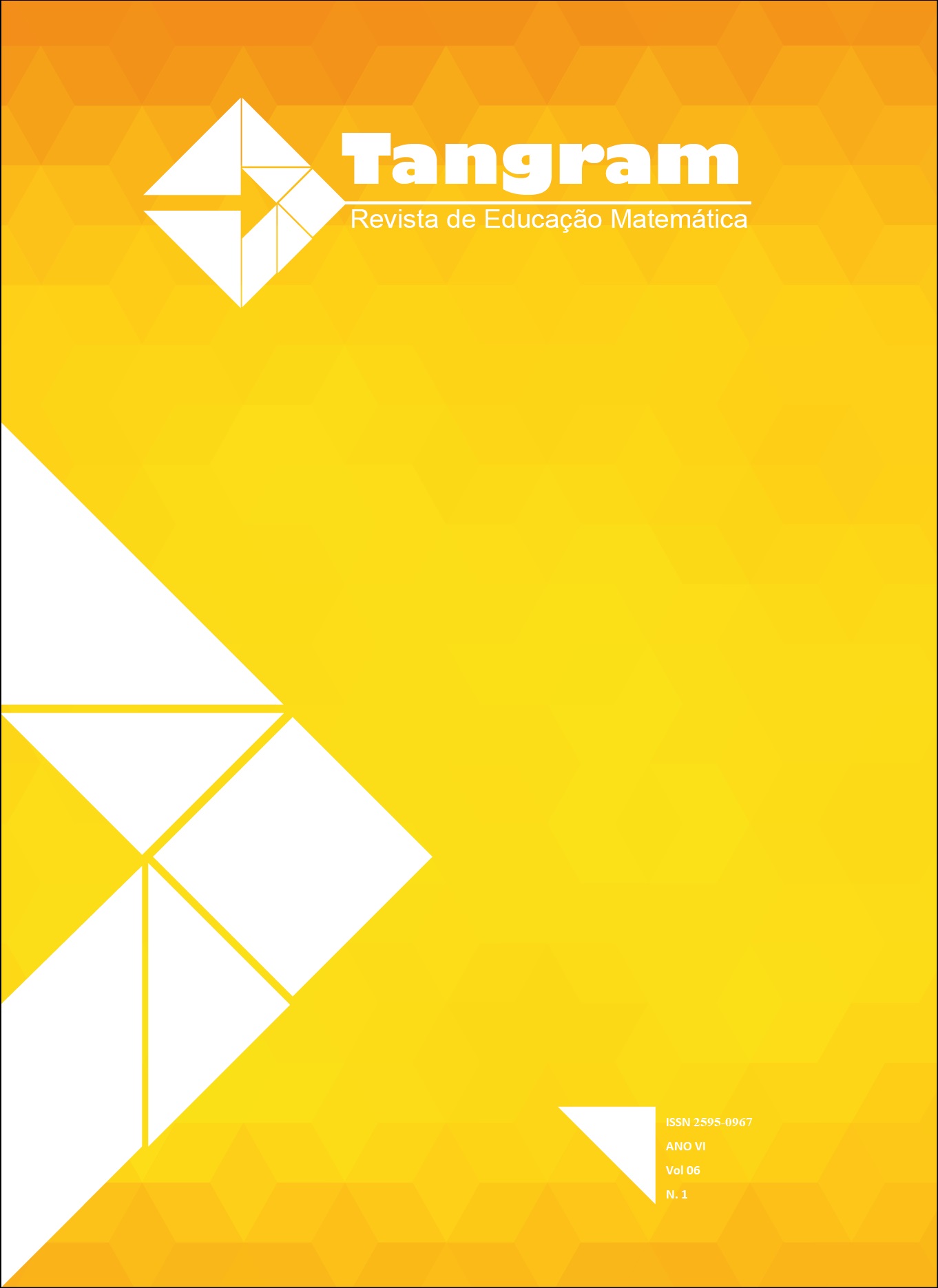A documentary work for the teaching of Compound Interest: articulations between resources for solving problem situations in times of pandemic
DOI:
https://doi.org/10.30612/tangram.v6i1.16871Keywords:
Documentary Genesis, Compound Interest., Collaborative Work.Abstract
This article presents an excerpt from a doctoral research, which aimed to characterize the Documentary Genesis of two high school mathematics teachers in a remote collaborative work, due to the Covid-19 pandemic, for the teaching of Compound Interest. The theoretical framework, Documentary Approach of Didactic, involves the continuous process of Documentary Genesis, in which resources, associated with use schemes, are transformed into documents. Considering the concept of documentary trajectory, we tried to understand the evolution of documentary work overtime. The research was structured in four professional situations: reflection situation, training situation, implementation situation and confrontation situation and, in this article, the situations of implementation and confrontation of classes related to one of the teachers, through the Classroom GeoGebra articulated with Google Classroom, in the resolution of problem situations are emphasized. Thus, it was possible to make inferences about the evolution of the teacher's documentary work and her professional improvement.
Downloads
References
Abar, C. A. A. P. (2019). Articulações teóricas sobre a Abordagem Documental do DidáticoTheoretical articulations on the documentary approach of didactics. Educação Matemática Pesquisa: Revista do Programa de Estudos Pós-Graduados em Educação Matemática, [s.l.], v. 21, n. 5, pp. 217-229. Portal de Revistas PUC- SP. http://dx.doi.org/10.23925/1983-3156.2019v21i5p217-229.
Dias, A. O., Almeida, C. B. & Abar, C. A. A. P. (2021). Estado de conhecimento sobre a Abordagem Documental do Didático em pesquisas na Língua Portuguesa. Revista de Ensino de Ciências e Matemática, v. 12, n. 1, pp. 1-25.
Gueudet, G. & Trouche, L. (2009). Towards new documentation system for mathematics teachers? The International Journal on Mathematics Education- ZDM, Springer, v. 71, pp. 199-218.
Gueudet, G. & Trouche, L. (2010). Des ressources aux documents, travail du professeur et genèses documentaires. In: Gueudet, G. & Trouche, L. (dir.), Ressources vives. La documentation des professeurs en mathématiques, 57-74, INRP et PUR.
Gueudet, G. & Trouche, L. (2015). Do trabalho documental dos professores: gêneses, coletivos, comunidades: o caso da Matemática. Em teia, 6(3). Tradução de Katiane de Moraes. https://periodicos.ufpe.br/revistas/emteia/article/view/2243.
Pinto, C. L. L. & Leite, C. (2014). Trabalho Colaborativo: um conceito polissêmico. Conjectura: Filos. Educ., Caxias do Sul, v. 19, n. 3, pp. 143-170.
Rocha, K. M. (2019). Une étude des effets du travail documentaire et collectif sur le développement professionnel des enseignants de mathématiques: apport des concepts d’expérience et de trajectoire documentaires. [Tese (Doutorado) – Curso de Didactique Des Mathématiques, Ecole Normale Supérieure de Lyon]. https://tel.archives-ouvertes.fr/ tel-02399664/document.
Trouche, L., Gueudet, G. & Pepin, B. (2018). The Documentational approach to didactics. In: S. Lerman (Ed.), Encyclopedia of Mathematics Education. Online first, N.Y.: Springer.
Trouche, L., Gueudet, G., Pepin, B., Rocha, K., Assis, C. & Igliori, S. (2020). A Abordagem Documental do Didático. DAD-Multilingual. https://hal.archives-ouvertes.fr/hal-02664943/document.
Downloads
Published
How to Cite
Issue
Section
License

This work is licensed under a Creative Commons Attribution-NonCommercial-ShareAlike 3.0 Unported License.
Authors must accept the publication rules when submitting the journal, as well as agree to the following terms:
(a) The Editorial Board reserves the right to make changes to the Portuguese language in the originals to maintain the cultured standard of the language, while respecting the style of the authors.
(b) Authors retain the copyright and grant the journal the right to first publication, with the work simultaneously licensed under the Attribution-NonCommercial-ShareAlike 3.0 Brazil (CC BY-NC-SA 3.0 BR) that allows: Share - copy and redistribute the material in any medium or format and Adapt - remix, transform, and create from the material. CC BY-NC-SA 3.0 BR considers the following terms:
- Attribution - You must give the appropriate credit, provide a link to the license and indicate whether changes have been made. You must do so under any reasonable circumstances, but in no way that would suggest that the licensor supports you or your use.
- NonCommercial - You may not use the material for commercial purposes.
- Sharing - If you remix, transform, or create from material, you must distribute your contributions under the same license as the original.
- No additional restrictions - You may not apply legal terms or technological measures that legally restrict others from doing anything that the license permits.
(c) After publication, authors are allowed and encouraged to publish and distribute their work online - in institutional repositories, personal page, social network or other scientific dissemination sites, as long as the publication is not for commercial purposes.






